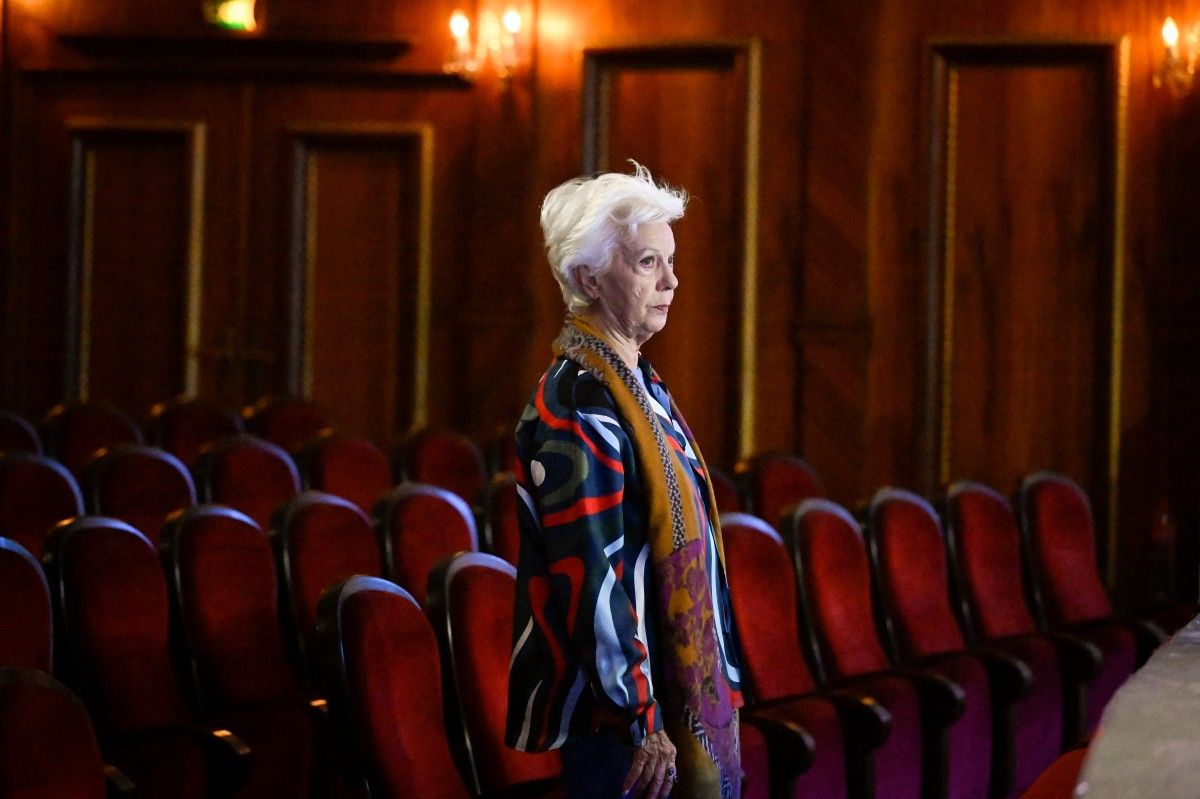- Home
- Raina Kabaivanska: Nurturing the Next Generation of Opera Stars

Bulgarian opera singer Raina Kabaivanska looks on during her annual masterclass for young singers in Sofia Opera and ballet in Sofia on October 1, 2024. ©Nikolay Doychinov / AFP
At nearly 90, opera legend Raina Kabaivanska continues to inspire generations as she mentors young talents through her masterclass in Sofia, sharing her profound experience and passion for opera.
Raina Kabaivanska, one of the greatest sopranos of her generation and arguably the finest Tosca after Maria Callas, remains a formidable force in opera at 89. Although it has been a decade since her last stage performance, her influence endures through the young stars she mentors at her annual masterclass in Sofia.
"When my career ended, I felt a deep need to continue being involved in music," Kabaivanska, who turns 90 in December, told AFP. "Music is my life. It provides energy and inspiration and, most importantly, shapes you as a person."
As her students rehearsed their arias for this year's final gala concert in Sofia, Kabaivanska lip-synched and gestured along in the shadows of the darkened hall. Suddenly, she rose from her seat, her arms gracefully guiding the singers through the most challenging parts.
"I am very old and I don't hide this, but working with the young gives me great power," Kabaivanska chuckled. "I am driven by the ambition to set them on the right path."
Born in 1934 in the Black Sea city of Burgas, Kabaivanska began her musical journey with piano lessons as a child. A high school teacher in Sofia recognized her vocal talent and soon included her in the school choir. She made her opera debut in Sofia in 1957, and two years later, she moved to Italy, where she quickly made a name for herself at Milan's prestigious La Scala.
Kabaivanska captivated audiences worldwide, making iconic roles such as Tosca and Madame Butterfly uniquely her own and sharing the stage with legends like Placido Domingo and Luciano Pavarotti. In 2007, Pavarotti's family invited her to perform a moving rendition of Verdi's "Ave Maria" at the great tenor's funeral mass in Modena.
Recognized not only for her vocal prowess but also for her acting skills, Kabaivanska left an indelible mark on those who saw her perform. George Tekev was mesmerized when he saw her play Queen Elisabeth in Verdi's "Don Carlos" as a nine-year-old, half a century ago.
Since 2001, Kabaivanska has taught masterclasses every autumn in Sofia, mentoring over 200 students from around the globe. Many of her students have continued their studies in Italy with scholarships from a fund established in her name. Notable alumni include sopranos Maria Agresta from Italy and Ukrainian Sofia Soloviy, as well as South Korean baritone Simon Lim.
This year, over 90 singers auditioned for just 14 spots. "What is required is talent. Talent says it all," Kabaivanska asserted. "Talent is not just natural ability but also a capability to see the world in a different way. You are simply born to sing."
Despite the challenges in today's arts landscape, where making a living from art is increasingly difficult, Kabaivanska's students find her guidance invaluable. Baia Saganelidze, a 30-year-old mezzo-soprano from Georgia, praised the opera star for teaching them "how to sing, how to live, and how to bring a role to the public."
"We always consider the characters, the composer, every detail is discussed with her," Saganelidze shared with AFP.
Romanian bass Andrei Miclea, 25, expressed the honor of learning under Kabaivanska. "We learn from the maestra but also from each other. In this profession, you have to steal from everybody," he noted, highlighting the collaborative learning environment.
With AFP
Comments